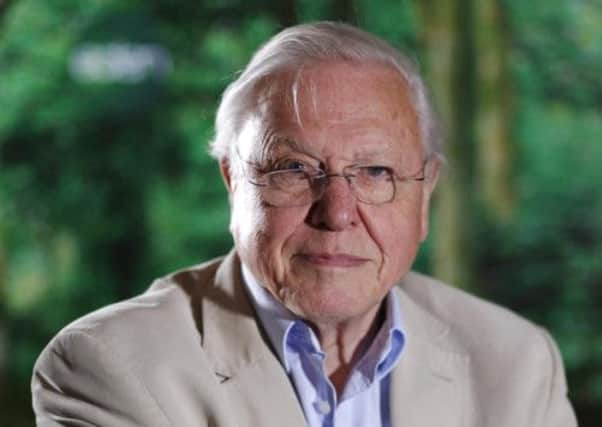Erikka Askeland: Have humans stopped evolving?


We have had spectacles since the 18th century, so people with poor eyesight have since been able to propagate before meeting their end by mistakenly hugging a bear rather than their grizzled relative, for example.
Thus, instead of one short-sighted person among thousands emerging as a genetic variant, many more of us now need glasses.
Advertisement
Hide AdAdvertisement
Hide AdWe have become very good at survival. Whereas our ancestors might have had to club ferocious animals in an effort to feed their families, now it is a matter of being able to pay up at Tesco without breaching our credit limit.
However, does this mean, as the venerable natural history presenter has suggested, that we will no longer adapt as a result of natural selection?
In an interview in the Radio Times, he said that because we are able to raise up to 99 per cent of our children successfully, the events that cull the weaker of the species are no longer an issue. You don’t have to be the fittest to survive, you just have to be lucky enough that someone taught you how to cross the road with due caution.
Frankly, the idea of end of human evolution may be a bit of a relief. When I was young, I saw a picture in a supermarket tabloid of what humans might evolve to look like in a million years. We looked a little like ET, the extraterrestrial, with big soup bowl eyes and giant heads because of all the television we watched. Also, our bodies had shrunk because we no longer needed strength, except for developing long fingers with which to press buttons.
For some reason, my granny and her friend Marie bought the National Enquirer religiously, which meant me and my cousins read some of the weirdest stuff when we were young and impressionable.
Nevertheless, despite spending an inordinate amount of time in my youth learning about how Elvis was alive and living on the Moon, I am sceptical about Sir David’s claims. Instead of changing physically, he reckoned, we will change culturally. All those books and gadgets we have produced mean we inherit more knowledge than prior generations.
My great-grandmother, for example, might have had limited access to books having grown up in rural Iceland. All I have to do is take my smartphone out of my hand bag to access the complete works of William Shakespeare, Robert Burns and JK Rowling.
But perhaps what Sir David hasn’t considered is that humans’ ability to invent and innovate is part of our evolutionary process. Starting with opposable thumbs, we have since developed the ability to build bridges over spans of water and engineer flight, feats that would have boggled the hewn-wool clad folk of past centuries.
Advertisement
Hide AdAdvertisement
Hide AdYet does all our combined knowledge and skill make us more resilient as a species? Sure, we have developed nuclear energy but we have also come near to global catastrophe at Fukushima in Japan.
Attenborough seems a bit gloomy about our prospects. He foresees that in another hundred years people will be nostalgic for spaces that aren’t crowded and “full of natural wonders”. The downside of our success at breeding and protecting our young is that the world is rapidly on its way to becoming over-populated, he worries.
He probably has a point. Now, despite the fact so many in the wealthy west are preoccupied with concerns about the economy and the rising cost of wine, we are living in gilded age of ease and luxury. The future might well be more bleak and difficult, as we stand about on pavements unable to move for the hoards of other people and we engage in combat for the last tin of anchovies since they became extinct.
Yet what humans haven’t evolved to do is predict the future. Thinking optimistically, we could discover ways to live comfortably in the Sahara, or something, thus solving the looming problem of overpopulation. Or pessimistically, we would could adapt skills and technology to live in hostile terrain less comfortably.
Or something completely surprising could happen, which the course of human history has shown us is probably the most likely. And while I might occasionally miss anchovies, I’m sure I could live without them.